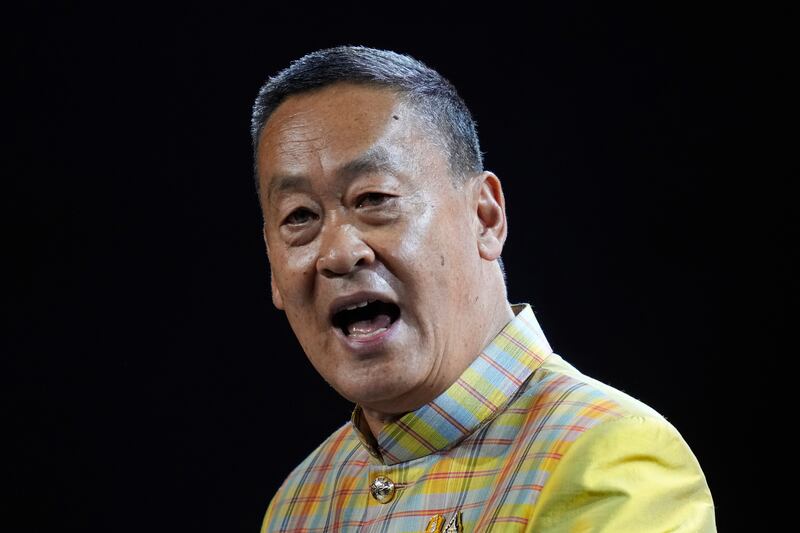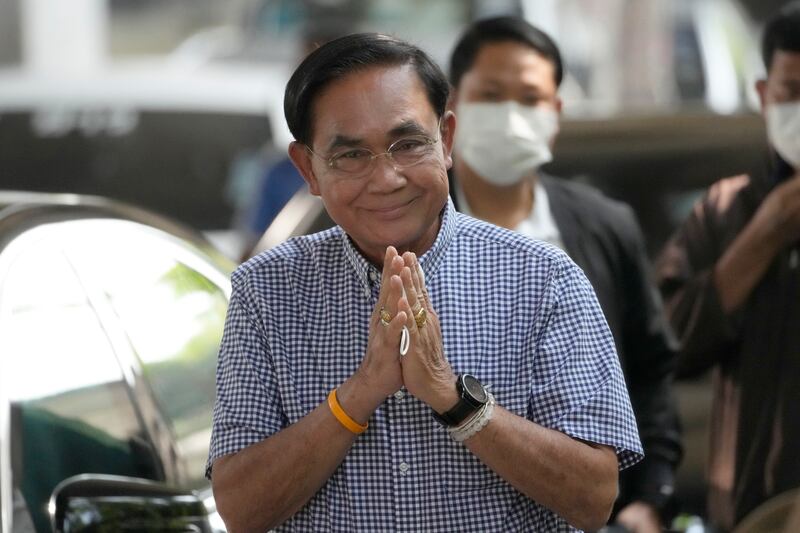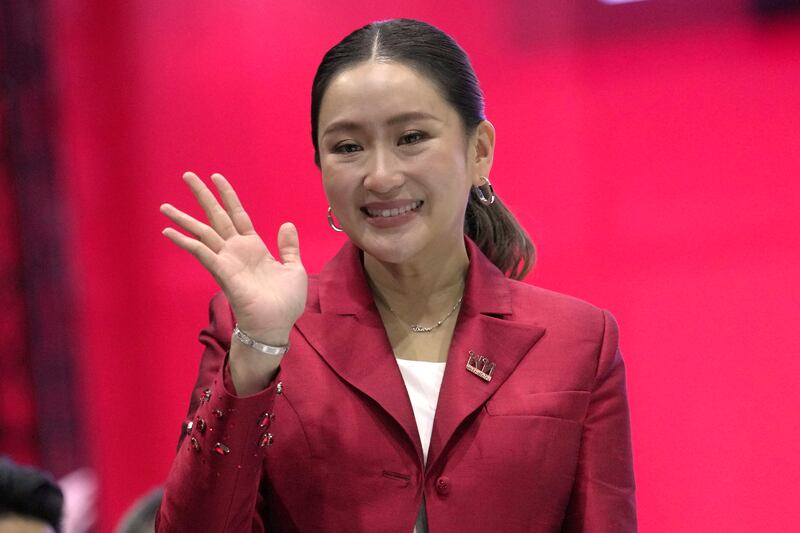Thailand’s royalist-military elites keep interfering in electoral politics through their control of the judiciary and unelected bodies.
Lately, the Constitutional Court dissolved the Move Forward Party and forced out Prime Minister Srettha Thavisin. The Election Commission, meanwhile, has been called to investigate whether the ruling Pheu Thai party is under the "control" of Thaksin Shinawatra, the former PM who is banned by a court order from seeking public office.
These unelected bodies have become an even more important tool for political parties associated with those elites.
Military interests are advanced through the Palang Pracharath Party (PPRP), led by Prawit Wongsuwan, and the United Thai Nation Party (UTN), formerly headed by Prayuth Chan-o-cha, the ex-junta chief.
But infighting is pulling the PPRP apart, while UTN has hit a ceiling. This raises the question of what comes next for both parties between now and the next general election, which has to be held by June 2027.

The two military-backed parties were drubbed in the May 2023 polls. Despite their poor performance, the two parties wrested a disproportionate share in Prime Minister Srettha’s cabinet – six posts – including two deputy premierships.
Palang Pracharath and UTN could have continued to live with the grand political bargain they struck last year with Srettha’s Pheu Thai party, which is leading a new government after his ouster last month.
The deal led to parliament blocking Pita Limjaroenrat from forming a Move Forward-led government, and allowed Thaksin to return from exile. It also gave the two parties cabinet seats to ensure that government policy never went against the military’s interests.
But political machinations have gotten in the way.
Thwarted ambitions
Prawit, 79, is believed to be behind an ethics complaint that ultimately brought down Srettha’s government. The petition was filed by a group of army-appointed Senators, many of whom were hand-picked by Prawit, a former army chief.
Given the Thai electoral rules, only a handful of candidates are eligible to become prime minister, and three have already been disqualified. Prawit appeared to be positioning himself as a compromise candidate.
An audio recording, allegedly of Prawit complaining that he was owed the prime ministership after being the loyal number two for so many years, has gone viral, and is now being discussed in parliament.
Since the Constitutional Court forced the resignation of Srettha on Aug. 14, rifts within Palang Pracharath have become irrevocable, with half of the party worrying that Prawit’s meddling could cost them.
RELATED STORIES
[ Thailand’s Srettha Thavisin falls prey to a judicial coup Opens in new window ]
[ Thailand’s ruling alliance shifts as PM Paetongtarn finalizes cabinet Opens in new window ]
[ What’s next for southern Thai peace talks after abrupt govt change? Opens in new window ]
Pheu Thai's Paetongtarn Shinawatra, Thailand's new prime minister, dropped the PPRP from her government, which is now a more streamlined eight-party coalition.
Thamanat Prompow, who was convicted of drug smuggling by an Australian court, stepped down as the PPRP secretary general and five others resigned from their executive posts with the party.
On Sept. 6, the remaining PPRP faithful re-elected Prawit as their party leader. But with just 20 members who only have their seats due to partisan gerrymandering, it’s now a fringe vanity opposition party for Prawit.
The PPRP’s newly elected general secretary, Paiboon Nitatawan, has threatened to retaliate against Thamanat, whose 20-member faction has joined Paetongtarn’s coalition government.
To date, they have remained in the party so as to not have to relinquish their parliamentary seats. It’s unclear where Thamanat’s faction may eventually land, either as its own party or in a merger with another.

All the infighting has led to an exodus of key party members, including political dynasties in Korat and Yala. Other PPRP members are searching for the exit; the question is where will they go?
UTN would be keen to absorb Palang Pracharath, as a merger is one of their only paths for growth.
Prayuth: Out of politics
As for Prayuth Chan-o-cha, he is now on the King’s Privy Council and has retired from politics. As prime minister from 2014-2023, he was nationally known, even if the public had tired of him and his policies.
UTN’s current leader, Pirapan Salirathavibhaga, a deputy PM, is a skilled political operator but lacks charisma.
UTN and Thamanat’s faction still have a disproportionate voice in Paetongtarn’s government, holding some 20% of the 35 cabinet seats, including the ministries of energy, agriculture and industry, and four deputy ministerial posts.
Yet, the military-royalist backed parties are increasingly at odds and out of touch with Thailand's electorate, while their aging base of support is diminishing. Both the PPRP and UTN have proven unable to grow their support among new generations of voters, who have rejected military-interference in politics and thrown their support to the People's Party.

Other parties can try to pick up some of the pieces. The pro-royalist Bhum Jai Thai, the third largest party in parliament with 70 seats, may appeal to some, but their pro-marijuana and regionally-centered policies may alienate others.
The Democrat Party is trying to emerge from the political wilderness, having joined Paetongtarn’s government, with two deputy Prime Minister positions. But the Democrats have a fundamental problem: No one knows what they stand for since they backed the military coup in 2014 that toppled then-Prime Minister Yingluck Shinawatra, Paetongtarn’s aunt.
The oldest political party in Thailand is now a small regional party that won a mere 2.29% of the vote in 2023.
And that bodes poorly for Thailand’s democracy. Due to archaic policy proposals and changing demographics, military-backed parties are expected to fare poorly in the polls. They benefited from the Pheu Thai’s calculation that it was politically expedient to keep them in the coalition.
But Prawit’s apparent machinations violated that grand bargain and served as a reminder that the military will never trust elected politicians.
With little prospects at the ballot box, the royalist-military elites will continue to intervene in politics through their control over unelected bodies. There are currently 11 separate legal and ethical complaints against Pheu Thai before them, a number that is certain to grow.
Zachary Abuza is a professor at the National War College in Washington and an adjunct at Georgetown University. The views expressed here are his own and do not reflect the position of the U.S. Department of Defense, the National War College, Georgetown University or BenarNews.
